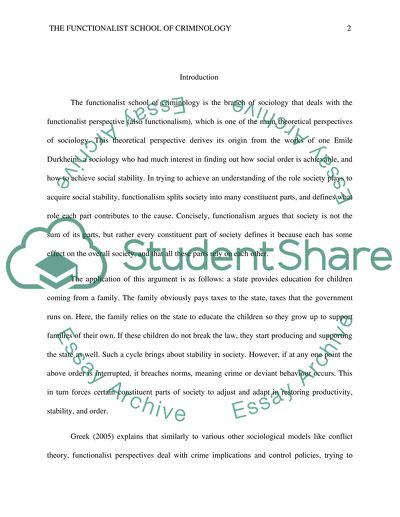Cite this document
(“The Functionalist School of Criminology Essay Example | Topics and Well Written Essays - 1750 words”, n.d.)
The Functionalist School of Criminology Essay Example | Topics and Well Written Essays - 1750 words. Retrieved from https://studentshare.org/sociology/1497367-discuss-the-functionalist-school-of-criminology
The Functionalist School of Criminology Essay Example | Topics and Well Written Essays - 1750 words. Retrieved from https://studentshare.org/sociology/1497367-discuss-the-functionalist-school-of-criminology
(The Functionalist School of Criminology Essay Example | Topics and Well Written Essays - 1750 Words)
The Functionalist School of Criminology Essay Example | Topics and Well Written Essays - 1750 Words. https://studentshare.org/sociology/1497367-discuss-the-functionalist-school-of-criminology.
The Functionalist School of Criminology Essay Example | Topics and Well Written Essays - 1750 Words. https://studentshare.org/sociology/1497367-discuss-the-functionalist-school-of-criminology.
“The Functionalist School of Criminology Essay Example | Topics and Well Written Essays - 1750 Words”, n.d. https://studentshare.org/sociology/1497367-discuss-the-functionalist-school-of-criminology.


